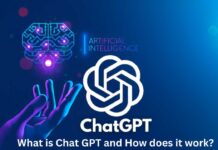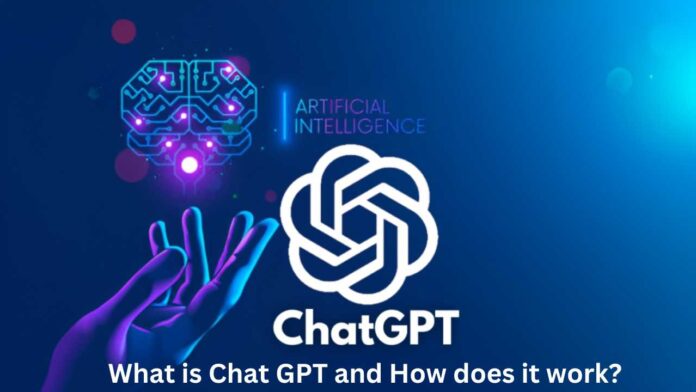ChatGPT is an advanced language model based on the GPT-3.5 architecture. Developed by OpenAI, it is a state-of-the-art model that uses deep learning algorithms to generate human-like responses to user queries.
ChatGPT has a wide range of applications, including language translation, text completion, question answering, and chatbot development. Its strength lies in its ability to generate responses that are both grammatically correct and semantically meaningful. This is achieved through the use of contextualization, which allows ChatGPT to understand the context of a given input and generate appropriate responses.
ChatGPT is also capable of learning from its interactions with users, which makes it an ideal tool for chatbot development. It can adapt to the specific needs and preferences of its users, improving its performance over time.
In customer service, ChatGPT can be used to develop chatbots that can handle customer queries and provide assistance in real-time, reducing the workload of customer service agents and improving the overall customer experience.
What Is the use Of Chat GPT?
Chat GPT has a wide range of applications across various industries. Here are some examples of its applications:
- Customer service: Chat GPT can be used to develop chatbots that can handle customer queries and provide assistance in real-time, reducing the workload of customer service agents and improving the overall customer experience.
- Education: Chat GPT can be used to develop interactive learning tools that help students improve their reading comprehension and writing skills. It can also be used to develop virtual tutors that provide personalized feedback and guidance to students.
- Healthcare: Chat GPT can be used to develop chatbots that provide patients with information about their medical conditions and help them manage their health more effectively. It can also be used to develop virtual assistants that assist healthcare providers with tasks such as scheduling appointments and managing patient records.
- Content creation: Chat GPT can be used to generate content for websites, social media, and marketing campaigns. It can also be used to automate content creation for news articles, sports reports, and weather updates.
- Language translation: Chat GPT can be used to develop language translation tools that provide accurate translations in real-time.
- Personalized shopping experience: Chat GPT can be used to develop chatbots that assist customers with their online shopping experience by providing personalized product recommendations and assistance with the checkout process.
- Financial services: Chat GPT can be used to develop chatbots that provide financial advice and assistance with investment decisions.
Overall, Chat GPT is a powerful tool for natural language processing that has a wide range of applications in various industries. Its ability to generate human-like responses and learn from its interactions with users makes it an ideal tool for chatbot development and other applications.
Advantages of ChatGPT:
- Language Processing: Chat GPT can process and understand human language with remarkable accuracy and generate appropriate responses.
- Learning Capability: Chat GPT can learn from its interactions with users, making it more intelligent and capable of providing personalized responses.
- Ease of Use: Chat GPT is user-friendly and easy to integrate into existing systems.
- Time and Cost Saving: Chat GPT can significantly reduce the time and cost involved in customer service, education, and healthcare.
- Scalability: Chat GPT can handle a large volume of requests simultaneously, making it a valuable tool for businesses with a high volume of customer inquiries.
Disavantages of Chat GPT:
- Biased Responses: Like all machine learning models, Chat GPT can generate biased responses if not trained properly.
- Limitations of Contextual Understanding: While Chat GPT is excellent at processing language, it may have difficulty understanding the context of a conversation, leading to irrelevant or inappropriate responses.
- Lack of Emotional Intelligence: Chat GPT cannot fully understand or express emotions, which can be a limitation in some situations where empathy is required.
- Limitations of Learning: Chat GPT may learn from inappropriate or offensive content, leading to biased responses.
- Security and Privacy Concerns: Chat GPT can be vulnerable to cybersecurity threats, and the use of personal data raises privacy concerns.
What Is the Future of Chat GPT?
Chat GPT has already made significant strides in the field of natural language processing and has the potential to revolutionize many industries. In the future, we can expect to see even more advanced language models that can understand human emotions, generate more diverse and inclusive responses, and provide personalized assistance in a wider range of applications.
There is also likely to be continued progress in the development of chatbots that can handle complex conversations and provide assistance in a more human-like manner. As more data becomes available and the models become more sophisticated, we can expect to see chatbots that are capable of providing even more sophisticated services, such as virtual coaching, personalized education, and even mental health support.
Overall, the future of Chat GPT is bright, and we can expect it to continue to play a significant role in the development of advanced language processing and chatbot technology in the years to come.
Conclusion
In conclusion, ChatGPT is a powerful tool for natural language processing that has a wide range of applications in various industries. Its ability to generate human-like responses and learn from its interactions with users makes it an ideal tool for chatbot development and other applications. However, it is important to be aware of its limitations and to use it in conjunction with other tools and techniques to ensure that its responses are accurate, relevant, and unbiased. You can visit other tech blogs list.














